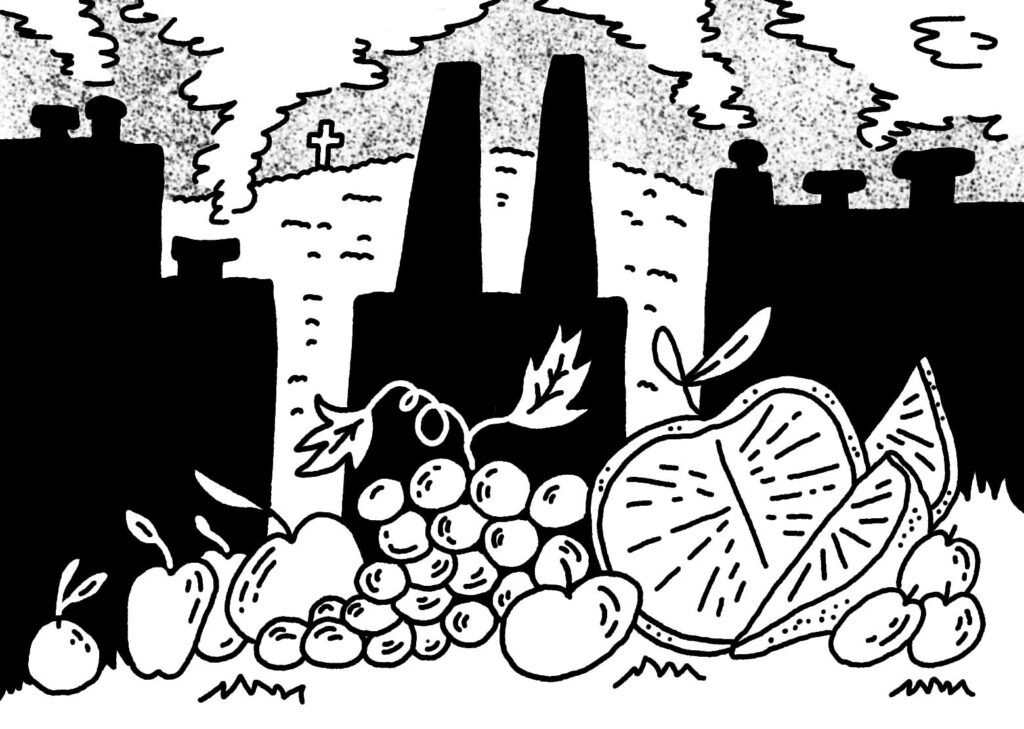Novels have long offered a forum for pondering the wonders and horrors of family life. Consider Dostoevsky’s The Brothers Karamazov, García Márquez’s One Hundred Years of Solitude, or Tolstoy’s Anna Karenina, which begins: “Happy families are all alike; every unhappy family is unhappy in its own way.”
The Reeds, the centre of Arjun Basu’s new novel, are not entirely unhappy, but it wouldn’t be accurate to call them happy either. The family consists of Bobby and Mimi and their two adopted children, eighteen-year-old Abbie and sixteen-year-old Dee, who live at “the end point of the middle-class dream” in an Anglo suburb west of Montreal.
The novel begins with a day in Bobby’s life as a downtown business executive (“Vice President, Revenue & Procurement, Eastern North America,” to be precise). In the elevator ride up to his office, he transforms from a “Family Man” into the “kind of man with a trail of unflattering nicknames whispered as he strutted past his amazingly productive employees.” On the job, he bullies, berates, and belittles with a sense of mercenary pride. He is the embodiment of the kind of toxic masculinity that, in recent years, has been deemed socially and professionally unacceptable. It comes as little surprise when he’s fired and replaced by a younger woman.

A city’s transformation through the eyes of a teenage artist.
Amery Sandford
Fortunately, the Reeds have been in a solid financial position ever since Mimi’s business reselling mid-century modern furniture took off. With the tools of digital commerce, her storefront in a dingy strip mall has become “a front for a back warehouse staffed by immigrants shipping goods to people just like Mimi.” She is single-minded in her pursuit of success, in part to prove herself to her extended community but mostly because she enjoys it. At her warehouse —“her empire”— she feels “immortal.” Although she asks Bobby to come work with her, he’s either too content with his new domestic responsibilities or too proud to accept her offer.
As her father navigates this sea change, Dee deals with body image issues and the social minefield that is high school. One day, as she hurries to class, “she realizes she’s been struck by a force, something out of the sky, or the universe.” At that moment, she senses her queer desire for the first time. While her friends unwaveringly support her new-found sexuality, her parents are a more difficult matter.
We also follow Abbie, who has “built a following on social media by posting photos of smokestacks and chimneys” accompanied by pieces of fruit placed in the foreground. Through him, we are afforded a teenager’s perspective of a city “in the midst of gentrification, of transformation.” Although the young artist’s creative output is underappreciated by his parents, an eccentric gallery owner (and the novel’s most memorable character), Etienne de Bosch, proposes a debut exhibition for his work. Abbie’s story is that of the artist who must journey through self-doubt and rejection to arrive at the triumph of self-expression.
An omniscient third-person narrator brings us equally close to each of the Reeds. We get to know every member from their own perspective while also seeing how they are perceived by the rest of the family. Basu has a knack for writing authentic and complex people by paying particular attention to their strange, unique traits. Bobby, for example, has an affinity for a shag carpet in their home and spends hours drinking scotch and “caressing it, drawing patterns, losing himself in its well-groomed depths.” It’s pathetic, it’s endearing, and it’s undeniably human.
Some of these details could have been pared back: a vaguely Freudian tangent analyzing Abbie’s attraction to Japanese women feels less than necessary, and there are a few too many scenes that find Dee “worrying about her ass.” But these excesses are excusable, for the most part, because these characters are likeable and fun to hang out with. After all, so much of home life consists of the repetitive quotidian duties of “dusting the shelves, or cooking dinner, or grocery shopping.”
There is a lightness to Basu’s prose and a tone deftly poised between the tragic and the comic. He is also a keen observer of Montreal’s culture and built environment as well as of “the parallel nature of language in the city, everything the same but different, but never different but the same.” (Having just moved from Montreal, I found myself called back with a certain wistfulness by his rich evocations of life in the city.)
The Reeds is a stirring exploration of the tensions between individual agency and familial obligation. At times these four characters are so preoccupied with their own affairs that they can barely feign interest in one another. Sitting around the dinner table, they seem less like a family than “a biological unit sharing sustenance in an age of abundance.” They drift farther apart, and the enduring question of the novel is whether they will be able to find their way back to a sense of closeness and cohesion. Many families — fictional or otherwise — are unable to repair disharmony, and until the final pages, it isn’t clear which way the Reeds will go.
Basu shows that the strength of the family novel remains its ability to touch upon universal truths through a singular example. The Reeds are merely one “odd collection bound by intractable love,” but they will likely strike a note of recognition in every reader, for better and for worse.
Aaron Obedkoff is pursuing a doctorate in English literature at Emory University, in Atlanta.

